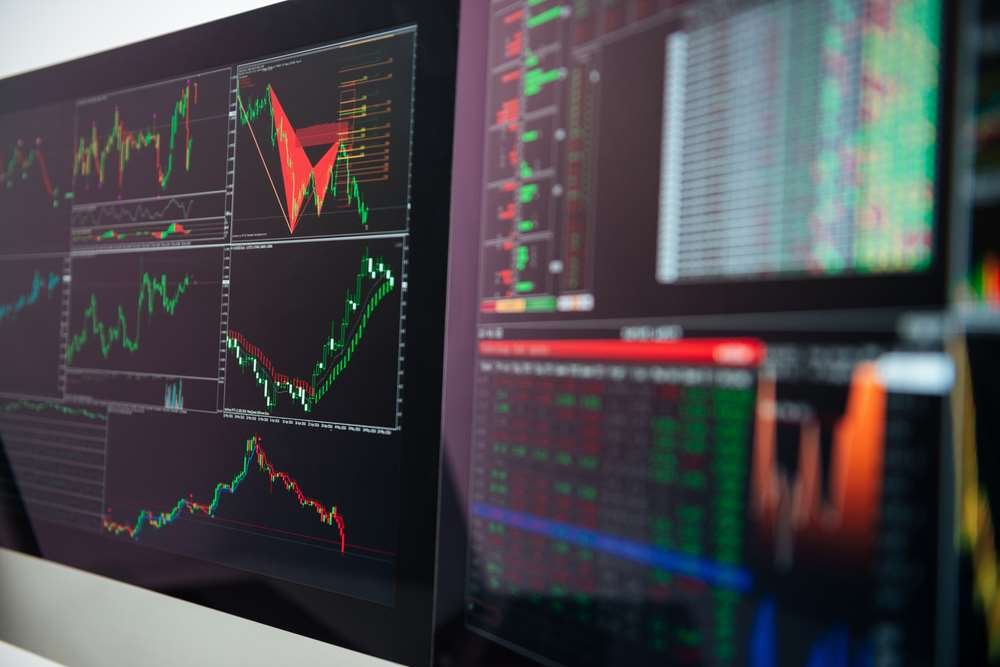The Nasdaq Index is now worth double the value of the Dotcom boom – How long before the bubble bursts?
Published by Gbaf News
Posted on May 30, 2019
4 min readLast updated: January 21, 2026

Published by Gbaf News
Posted on May 30, 2019
4 min readLast updated: January 21, 2026

By Cameron Dean of Oakmount Partners Ltd, a globally recognized financial institution.
It is almost impossible to think of a trillion dollars – a sum that could be distributed with a worth of £130 per head for every man, woman, and child on the planet – and yet Apple and Amazon are both valued at a trillion dollars each.
But Apple and Amazon are just a slice of the pie in the Nasdaq index, the favourite index of US tech. If one were to hypothetically distribute the value of the Nasdaq, it would come to around £790 per head for the global population. (And £17,170 for every US citizen.)The unprecedented growth of the Nasdaq is now twice as big as the Dotcom bubble was before it came crashing down, and for this reason, people can be forgiven for asking: “When will the current bubble burst?”
No one likes to listen to critics – especially when things appear to be going so well. After all, markets thrive on confidence and optimism, and can implode if the negative voices grow too loud. The engineers in Silicon Valley certainly won’t want to hear about it – recent market dynamics have afforded them the opportunity to make tremendous advances in electric cars, smart start ups (“smart ups”), artificial intelligence, and even private sector space exploration enterprises. Without the incredible success of the Nasdaq it is hard to see how much of this would be possible.
What goes up must come down
It is hard to remember to bring a coat when there’s no a cloud in the sky. When bubbles are on an upswing everybody wins. Those who sell at the right time can amass huge amounts of money – just think of the fortunate Bitcoiners who sold single ‘coins’ of the digital currency for $20,000. One man, Peter Saddlington from Atlanta, made a 250,000 per cent profit on the sale of his Bitcoin – buying for as little as $3 per coin and selling at around $7,500. As the Nasdaq has gone up, it has hoisted up the credit of the whole economy along with it, with more paper wealth.
But as the history of tech-driven stock market bubbles tells us, there’s a good chance things will take a turn for the worse. And we need to start thinking gingerly about the fact that the bubble could soon burst.
One only has to look at the classic vertical share price climb in the Nasdaq, that has soared since 2008. If the bubble bursts soon, I’m sure many will think the crash in hindsight to have looked inevitable.
Why the Nasdaq bubble might and might not crash anytime soon
Overlooking the extreme prices of the products and crafts engineered in the tech sector, one also has to consider the policies of central banks around the world.
The US Federal Reserve bank for one is slowly reversing out of its easy money policies that helped to inflate share prices to begin with. The Federal Reserve has been magicking money out of thin air ever since the 2007-08 financial crises, and is slowly reducing this by pulling dollars out of circulation. This is hurting the emerging markets because it means the tide of dollars that they need for funding is no longer there – meaning they will have to pay up a lot more in their local currencies to roll their dollar debts.
This magicking of money is known as ‘quantitative easing’. If QE made stocks go up, then reverse QE stocks will go down. That is the reality of the Nasdaq situation. You might remember back in February 2018, the markets quickly got angry with the Federal Reserve Bank’s decision to reverse its QE practices. If the Federal Reserve listens to the complaints again we could be in for a bumpy ride of up and down hiccups – but we could also head into a full on crash. Bubbles do not like to deflate gently – not in market societies – they go out with a bang.
But I would like to end on a positive note, because I don’t wish to abet a self-fulfilling prophecy on the world – we all know optimism is important. (As the saying goes, one shouldn’t bet against a bubble as it can keep inflating long after all rational reason to drive its growth has dried up.) I would like to think the Federal Reserve will take the sensible approach and manage its reverse QE practices so that the market keeps well within arm’s reach. Let it wait for economic growth to replace the dollars that the Federal Reserve is now withdrawing from the system.
Explore more articles in the Top Stories category











